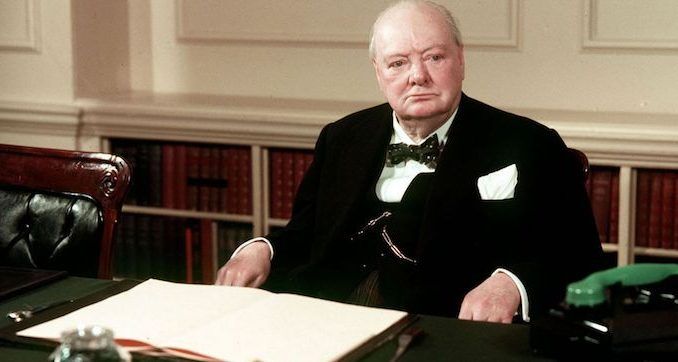
As Western leaders condemn Syria’s alleged use of chemical weapons it is easy to forget that Britain, under Winston Churchill, gleefully used them against the Russians.
In 1919, then secretary state of war, Winston Churchill, was keen to use Britain’s secret stockpile of chemical weapons against the Russian Bolsheviks.
Thegaurdian.com reports: The British were no strangers to the use of chemical weapons. During the third battle of Gaza in 1917, General Edmund Allenby had fired 10,000 cans of asphyxiating gas at enemy positions, to limited effect.

BYPASS THE CENSORS
Sign up to get unfiltered news delivered straight to your inbox.
You can unsubscribe any time. By subscribing you agree to our Terms of Use
But in the final months of the first world war, scientists at the governmental laboratories at Porton in Wiltshire developed a far more devastating weapon: the top secret “M Device”, an exploding shell containing a highly toxic gas called diphenylaminechloroarsine.
The man in charge of developing it, Major General Charles Foulkes, called it “the most effective chemical weapon ever devised”.
Trials at Porton suggested that it was indeed a terrible new weapon. Uncontrollable vomiting, coughing up blood and instant, crippling fatigue were the most common reactions.
The overall head of chemical warfare production, Sir Keith Price, was convinced its use would lead to the rapid collapse of the Bolshevik regime. “If you got home only once with the gas you would find no more Bolshies this side of Vologda.”The cabinet was hostile to the use of such weapons, much to Churchill’s irritation.
He also wanted to use M Devices against the rebellious tribes of northern India. “I am strongly in favour of using poisoned gas against uncivilised tribes,” he declared in one secret memorandum.
He criticised his colleagues for their “squeamishness”, declaring that “the objections of the India Office to the use of gas against natives are unreasonable. Gas is a more merciful weapon than [the] high explosive shell, and compels an enemy to accept a decision with less loss of life than any other agency of war.”
He ended his memo on a note of ill-placed black humour: “Why is it not fair for a British artilleryman to fire a shell which makes the said native sneeze?” he asked. “It is really too silly.”
A staggering 50,000 M Devices were shipped to Russia: British aerial attacks using them began on 27 August 1919, targeting the village of Emtsa, 120 miles south of Archangel. Bolshevik soldiers were seen fleeing in panic as the green chemical gas drifted towards them. Those caught in the cloud vomited blood, then collapsed unconscious.
The attacks continued throughout September on many Bolshevik-held villages: Chunova, Vikhtova, Pocha, Chorga, Tavoigor and Zapolki. But the weapons proved less effective than Churchill had hoped, partly because of the damp autumn weather. By September, the attacks were halted then stopped.
Two weeks later the remaining weapons were dumped in the White Sea. They remain on the seabed to this day in 40 fathoms of water.


